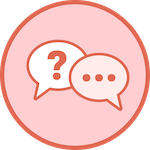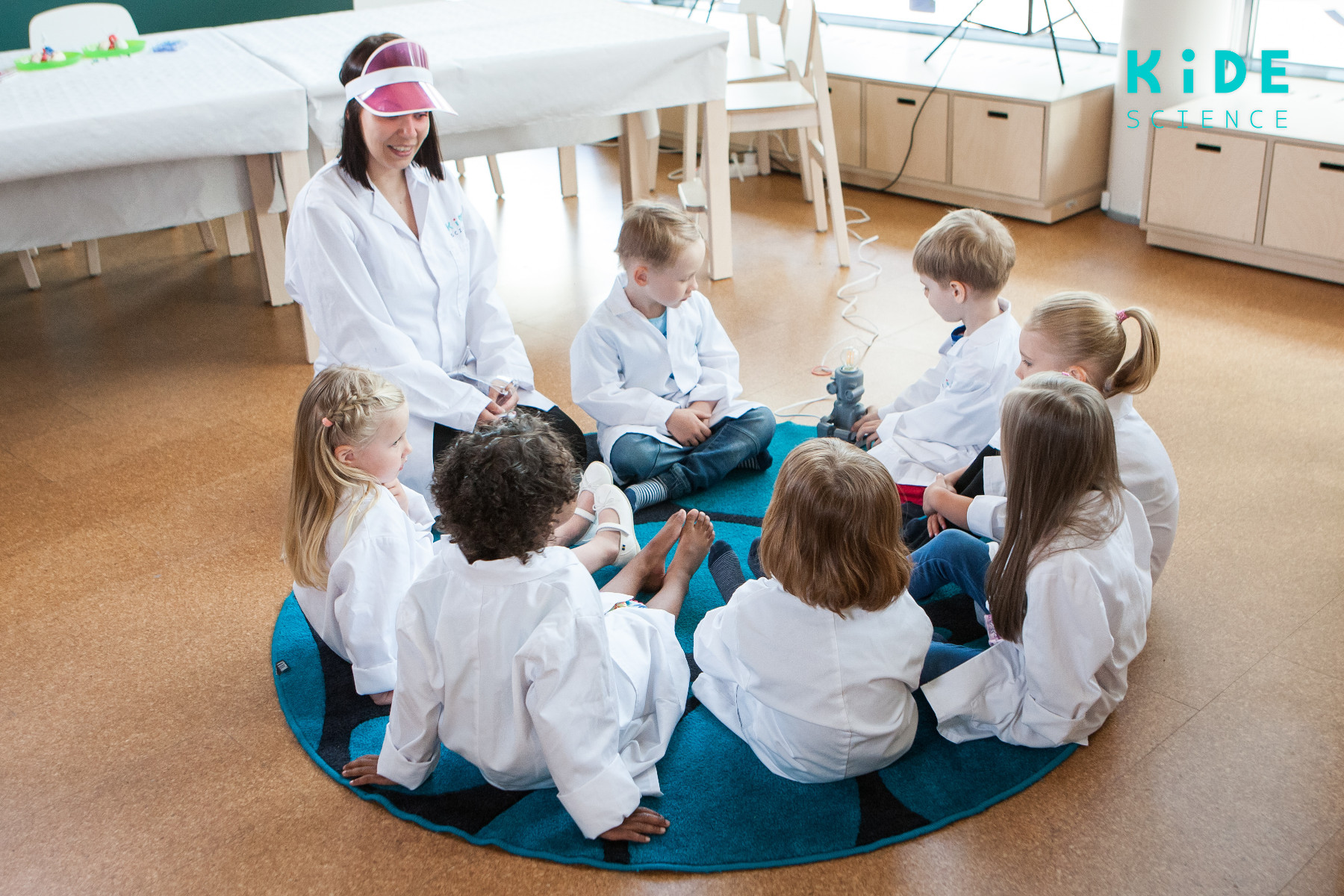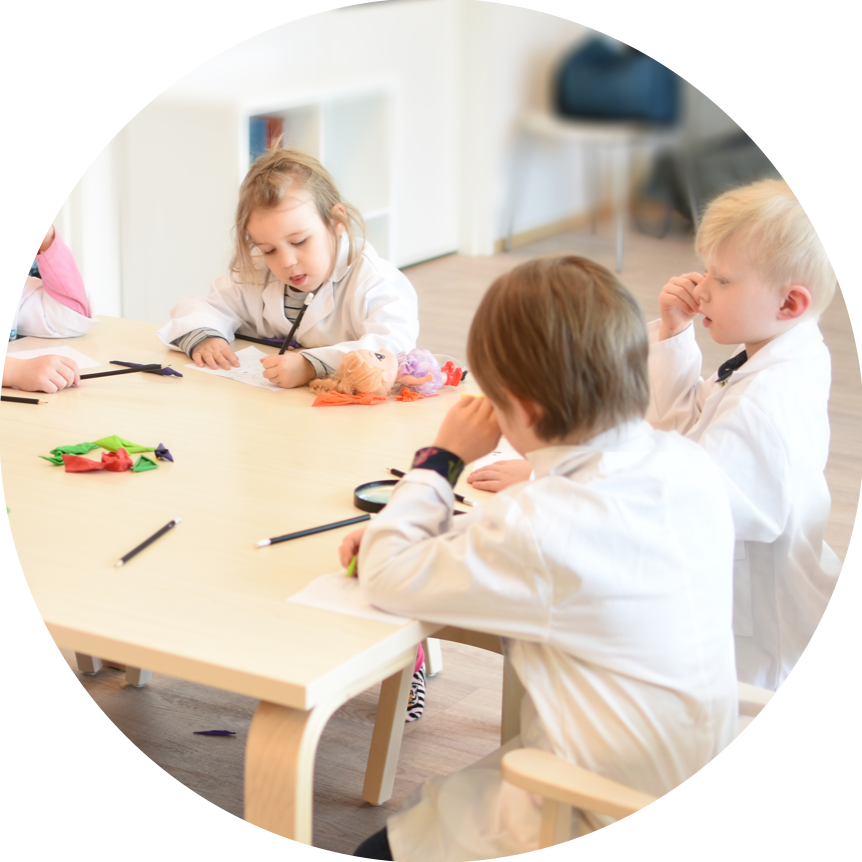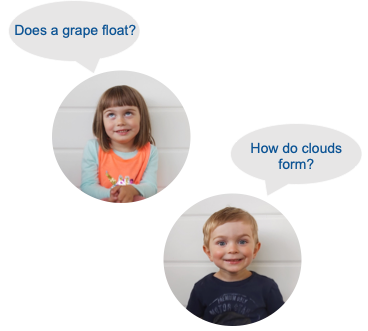How We Handle Formative Assessment
We look at the learning process because that's more beneficial for the child. There is no huge pressure from the testing situation, and the formative way gives us more information on the child's learning habits.
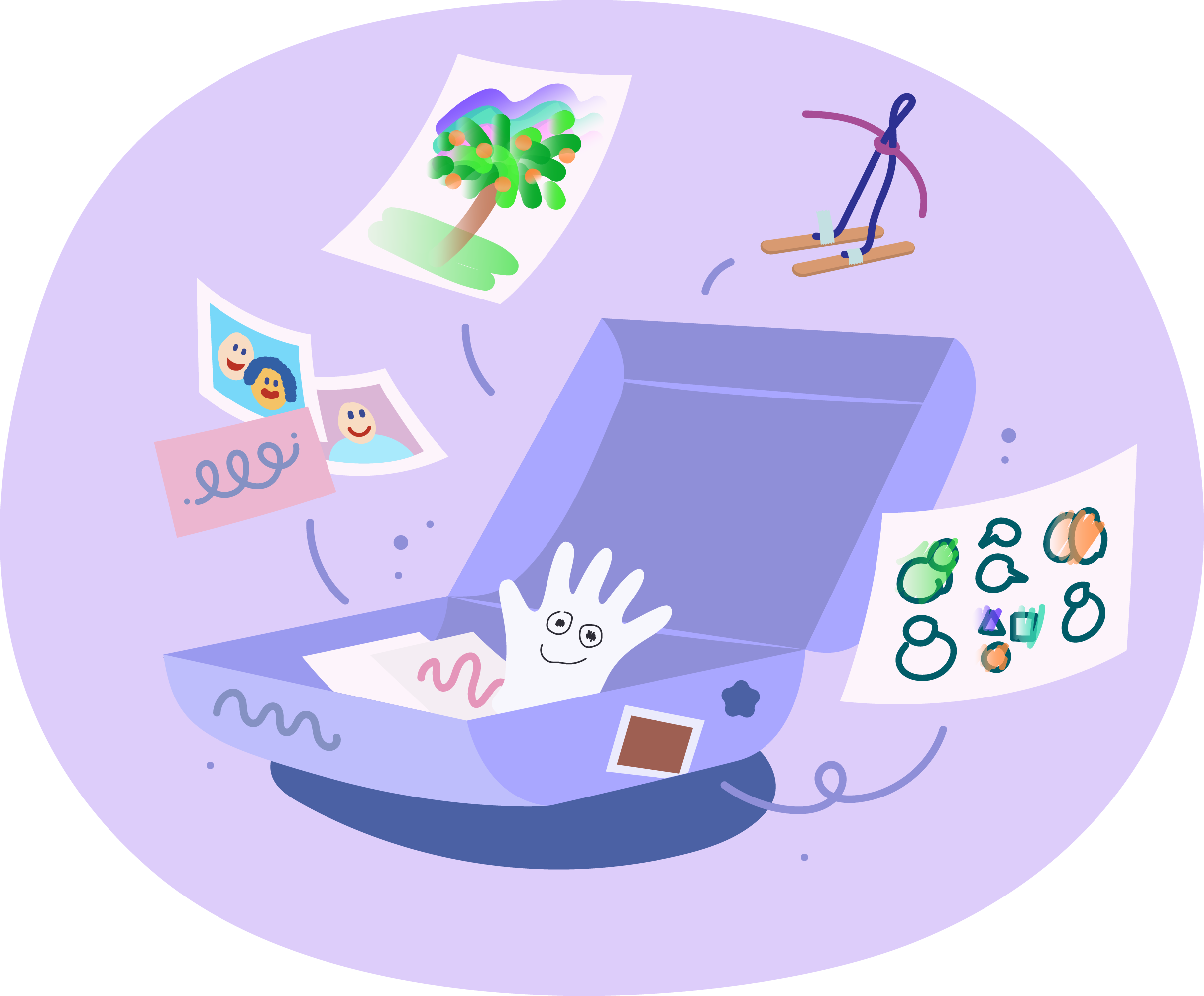
Other Episodes
10-Part Teacher Training Series
In our 10-part series of teacher training, we will walk you through the topics and practicalities including transitions in Kide Lessons, pedagogical tips, questions, assessment, storytelling, children’s agency & preparation, drama approach, group management, adult’s role & home experiment, and scientific arguments behind the Kide-approach.
Video Transcript
Hi there.
And welcome back. In this video, we will talk about assessment in Kide Science lessons. Do we assess the children? And if we do, how? Let's take a closer look.
You have probably experienced situations as a child where you've had to take a test to prove that you've learned something. You may remember the nervousness, the tingling in your fingers, your stomach hurting may be feeling a little bit dizzy. And you also have probably experienced at least once a situation where you didn't do well in a test and you felt that you couldn't really show what you know and what you really can do. These feelings are very familiar to us.
The philosophy around exams and testing internationally are undergoing a change, since testing children and measuring only the end result has shown not to actually measure what children are able to do. Our assessment philosophy is based on the basics of the Finnish early childhood education learning philosophy.
We look at the learning process because that's more beneficial for the child. There is no huge pressure from the testing situation, and the formative way gives us more information on the child's learning habits.
To avoid heavy standardized tests in the Finnish model, we use pedagogical documentation that focuses on two things:
1. What kind of learning opportunities were given to the children, and...
2. How the teacher could better provide learning opportunities for a particular type of student.
Children are only tested for learning disabilities, but otherwise, the documentation is done by the teacher. And that's why we look carefully into training teachers also in our Kide Science model.
Now you're probably wondering, but how can we then know then our pedagogy works? Well, we have worked closely with the parents and the teachers. We've done scientific questionnaires for years regarding the learning of the children and what kind of change has the adults close to the child noticed? This means close observation of the child done by the adult. In this model, the child is not put into a testing situation, but the adult closely observes the behavior of the child in natural situations. The feedback has been extremely good, and we know that we provide good quality.
Sometimes, however, the school, the state or municipalities may require standardized testing. You might also get pressure from the parents to do these tests. That's why we provide you something to work with within our model. The change in testing learning is the people.
Educators should focus more and more on the process of learning, not only the results. This ongoing assessment approach is called formative assessment, and that's something that we do at Kide Science as well. We look at the learning process because that's more beneficial for the child. There is no huge pressure from the testing situation, and the formative way gives us more information on the child's learning habits. This way, we can also see if something needs to change during the process, not only at the end when it might be too late. Concentrating on the learning process doesn't mean that we would always entirely eliminate assessing the end result.
Questionnaires can be useful to gain data from the learning processes as well, especially when it comes to adults.
We at Kide Science use questionnaires, for example, to validate our teacher training. Small questionnaires help us to find out who of the teachers are really motivated and go through the materials carefully in our teacher trainings. We combine these small tests with more formative ways of assessment, such as learning diaries or self-assessment tasks. But, children concentrating on the testing too much can even be harmful to the feeling of self capability, since children are still learning how they learn.
So how do you actually do formative assessment, then? Here are a few tips on how you can document the child's learning process.
You can, for example, create a scientist portfolio for each child. The portfolio could include, for example, photos of the situations, drawings, or other child made reports on the experiments. Or you could, for example, write down phrases or words that the child has used. The idea is to document and present the learning processes in different ways. A concrete portfolio can make it easier to talk about child's learning with other teachers and parents as well.
You could even call the portfolio a science treasure chest to bring some story into these processes as well. This way, it doesn't feel like a test to the child. It's more like a way to gather nice things together. You can also gather objects like pipettes or drawings to the chest from the lessons anytime you like.
You can then discuss with children the objects and really hear what's meaningful to them. It's good to remember that a portfolio for Level One and Level Three should look completely different. With the younger children, it's more about taking photos together, drawing together, writing down things that the children have said, etc.
And with the level three children, the whole process can be more self-directed. When doing this kind of portfolio work or science treasure chest work with children, it's good to make sure that the child does not feel tested or that "I should perform very well," now.
The most important thing is that we could really see where the child's strengths are so that we can really build on those.
Here is a task for you: Think about the assessment culture in your country or region. What kind of thoughts do you have for learning assessment? What kind of expectations do the school regulators have? What about the parents? Write down ideas.
How would you present those ideas about assessment in Kide Science lessons to parents or school administrators?
And hey, if you feel like it, go ahead and start doing portfolios or science treasure chests with your scientists, and have fun. Okay. Bye-bye.
Start your free trial of Kide Science to get story-based lesson plans for teachers.
Related articles
To have a structure and routines that are always remaining the same will help the child to...
Our aim should be active learning and safe learning environment. Not smoothness and control.
There's a very simple way to answer most children's questions that gets them thinking. What do you...
